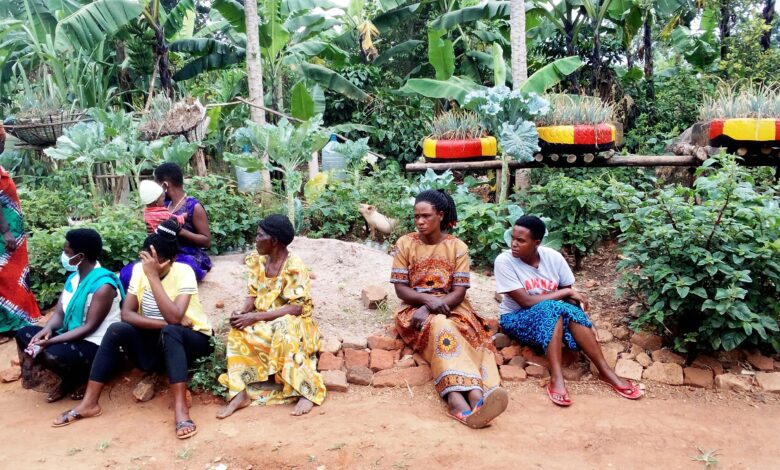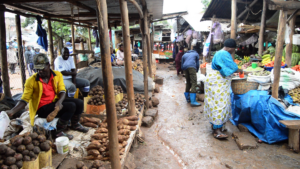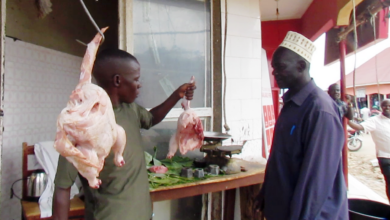Farmers’ cooperatives partner to promote food safety in Greater Masaka

MASAKA – Farmer’s cooperative societies and local government authorities in Greater Masaka area have partnered to ensure a proper food supply chain and food safety, this publication understands.
According to Sowedi Sserwadda, the chairman of Kibinge Coffee Farmers’ Co-operative Society [KCFCS], the corporate food systems have negatively impacted people’s health as most of the processed foods come from farmers who use fertiliers.
Corporate food systems are defined as the dominant food systems which are characterized by the agro-industrial model and increasingly globalised value chains and serve the interests of a few powerful countries and large corporations.
Sserwadda says KCFCS is encouraging farmers to embrace organic farming, adding that they are also training farmers in pre-harvest and post-harvest handling, as they put emphasis on agroecology which is a way of farming that works with nature, not against it, and considers the social and ecological aspects of food production.
He adds: “There is hope that agroecology will help to create a solid system for food safety, which is crucial for promoting public health.”
Masaka Union agricultural extension officer, Joseph Ssekyayi said they have deployed to train farmers in pre-harvest, post-harvest handling, proper storage, and processing of the produce.
On storage of the produce, Masaka Cooperative Union sales and marketing manager, Richard Muganzi says they have constructed six modern stores in different sub-counties in Greater Masaka to help farmers store their coffee.
He said about 104 cooperative societies with over 1,200 small scale farmers registered under this SACCOs were provided with 500 tarpaulins to ensure quality during post-harvest handling of the produce.
Masaka district agricultural officer, Dennis Ssebinojjo added: ”Our involvement in enhancing safety precautions on food productivity right from the gardens to the final consumer, has attracted market for local foodstuffs which are free from artificial chemicals.”
Meanwhile, Masaka district LCV chairman, Andrew Batemyetto, said they are trying their best to improve the food supply, they face the challenge of inadequate funds for rehabilitation of roads and establishment of food storage facilities that guarantee food safety.
”With the little funds we have, we started rehabilitating some access feeder roads to enable farmers to transport their produce from farms to markets” he said.
Masaka city health officer, Musa Mabeeri said the city authority set byelaws for food control systems to ensure quality and safe food for human consumption.
”We are encouraging market vendors to avoid food crops contaminated with artificial fertilizers, ensure proper transportation and storage of foodstuff in markets,” he said, adding, “This will save people from getting infected with food borne diseases caused by harmful foods.”
He added that they have set guidelines for ensuring cleanness of the market stalls for foodstuffs as well as personal hygiene.
On the other hand, at press conference held in Kampala yesterday, the Eastern and Southern Africa Small Scale Farmers Forum [ESAFF-Uganda] issued a statement saying some farmers in Uganda are using pesticides and synthetic fertilizers which have posed health dangers.

Peter Enyetu, the vice chairperson, ESAFF-Uganda said the entire cycle of food production, distribution, and consumption is often contaminated. ”It is very crucial to cooperate and uphold established food safety standards if we are to ensure food safety” he said adding that it is everyone’s responsibility since everyone has a right to a healthy diet.
According to the FAO, around 600 million people, or nearly 1 in 10 people worldwide, get sick after eating contaminated food, and 420 000 people die each year and 125,000 of those deaths are children under the age of five.
About 110 billion US dollars are spent on food borne illnesses each year in low- and middle-income nations, with sub-Saharan Africa bearing the burden of this expenditure at US$ 16.7bln.
Yesterday Uganda joined the rest of the world to mark the sixth World Food Safety Day under the theme: “Food standards save lives”. Its goal is to increase awareness and motivation for action in the areas of preventing, detecting, and managing food borne risks which in the end ensures economic growth, agricultural productivity, market access and sustainable development.
https://thecooperator.news/pdm-saccos-in-greater-masaka-receive-over-shs-22bln/
Buy your copy of thecooperator magazine from one of our country-wide vending points or an e-copy on emag.thecooperator.news







